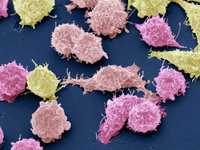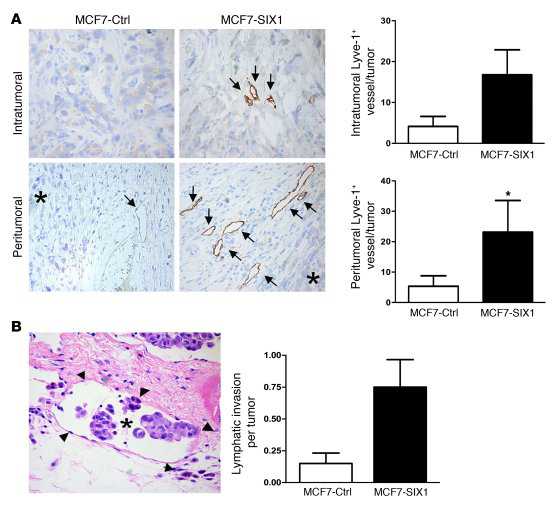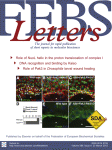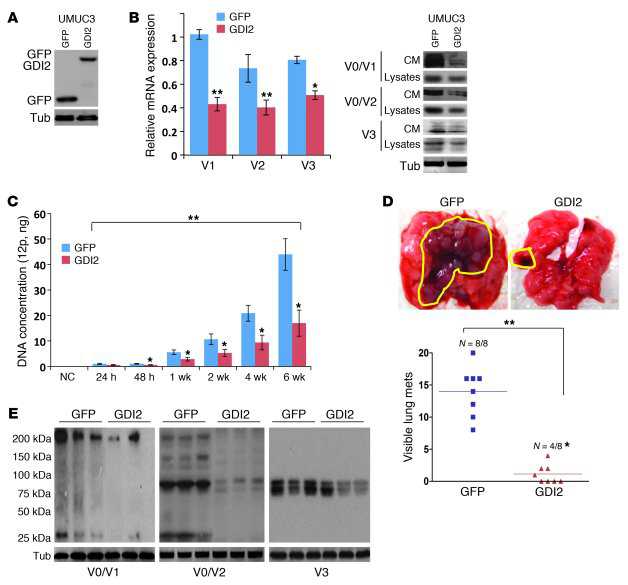Nature:两项研究揭示大部分抗癌药疗效取决于癌细胞基因组成
2012-04-10 中国生物技术信息网 中国生物技术信息网
多数抗癌药疗效取决于癌细胞基因组成 日前,科学家通过研究发现,多数抗癌药药效好坏取决于癌细胞的基因组成,如果进行针对性用药,提高药物敏感度,癌症疗法的疗效或可更上一个台阶。相关两份研究成果3月28日在线发表于《Nature》杂志上。 科学家在一次研究中发现,同癌症相关的基因在发生突变的时候,药物敏感性会随之发生变化。于是,科学家将遗传识别同药物测试紧密统一起来,并且建立了详实的资料库,从而能够

多数抗癌药疗效取决于癌细胞基因组成
日前,科学家通过研究发现,多数抗癌药药效好坏取决于癌细胞的基因组成,如果进行针对性用药,提高药物敏感度,癌症疗法的疗效或可更上一个台阶。相关两份研究成果3月28日在线发表于《Nature》杂志上。
科学家在一次研究中发现,同癌症相关的基因在发生突变的时候,药物敏感性会随之发生变化。于是,科学家将遗传识别同药物测试紧密统一起来,并且建立了详实的资料库,从而能够完整描绘出各类基因突变会对不同癌症抗癌类药物的药性造成何种影响。在进行分门别类的划分和测定之后,今后在治疗癌症时,就可根据病人的自身情况具体用药,从而提高治疗的成功率。
据悉,为了研究癌症机理,并且寻找对应的治疗方法,科学家在实验室里培养了各种各样的癌细胞。通过不断的收集积累,科学家搞清楚了数百种癌细胞系的基因特征,其中就包括同癌症相关的基因突变,以及基因活化的各种样式。随后,科学家又将已获准生产的抗癌药同这些基因特征进行一一对应,并且查看记录癌细胞的不同反应。
加拿大安大略癌症研究所(Ontario Institute for Cancer Research)的主席汤姆-哈德森(Tom Hudson)表示:“这项研究成果具有非常重大的意义。这样一来,我们在针对不同的癌症病人设计治疗方案时,就能够从中获得有价值的信息。同时,这项研究对于制药产业而言也是一件好事,今后他们在进行药物研发的时候能够更加具有针对性,并且有效降低研究经费。”据悉,哈德森并未参与此项研究,因而他的意见十分客观。
波士顿达纳-法伯癌症研究所(Dana-Farber Cancer Institute)的癌症研究员李维 加莱维(Levi Garraway)参与了此项研究,他介绍称,尽管目前科学家们已经纷纷意识到,就癌症治疗而言,更应该关注引发癌症的基因变异而不是疾病本身,但是,真正考虑到用药时,仍面临不少困难。其中之一就是,制药公司在进行临床试验之前,他们也无法弄清楚自己生产的抗癌药具体会对哪些病人有效。
近日,一项新研究指出,癌症患者体内同一肿瘤的不同部位具有不同的基因,并且转移至身体别处的癌症与原发癌症的基因也具有一定差异。正因为如此,尽管药物在不断更新,但是一种药物开始时有效,患者使用一段时间后却突然失效,因而癌症死亡率才会居高不下。
为了让制药公司能够开发出更具针对性的抗癌药,加莱维同其他科研人员一起编撰了一部癌细胞系百科全书(Cancer Cell Line Encyclopedia) ,里面收集整理了947个细胞系的基因信息,其中还包含479个细胞系的药物敏感性测试结果以及24类抗癌药的测试结果。
同时,英国剑桥大学韦尔科姆基金会桑格学院(Wellcome Trust Sanger Institute)的马修-加内特(Mathew Garnett)带领了另外一组科学家,他们也收集整理出了一部类似的百科全书,其中包括639个肿瘤细胞系的基因信息,以及130种抗癌药的测试结果。目前,这两个科研团队所整理的癌细胞系百科全书都已公开,制药公司可以在互联网上找到研究结果。休斯敦MD安德森癌症研究中心(MD Anderson Cancer Center)的计算生物学家约翰-韦恩斯坦(John Weinstein)表示,科研团队提供的这份百科全书会是一个非常有用的研究工具。
不过,实验室培养的癌细胞也存在一定的局限性,那就是在培养器皿中生长繁殖的细胞,其周围环境无法做到同人体内部完全一致,例如在针对实验室癌细胞用药时,药物会直接作用在细胞上,而如果是在真实的人体环境下,药物首先会在人体循环系统中流动,最终才会到达目标处。因而,在临床阶段,某些药物的药效有可能会出现同实验室模拟情况不大相符的结果。这也许是科学家下一步需要研究的方向。(生物谷 bioon.com)

doi:10.1038/nature11005
PMC:
PMID:
Systematic identification of genomic markers of drug sensitivity in cancer cells
Mathew J. Garnett, Elena J. Edelman, Sonja J. Heidorn, Chris D. Greenman, Anahita Dastur, King Wai Lau, Patricia Greninger I. Richard Thompson, Xi Luo, Jorge Soares, Qingsong Liu, Francesco Iorio, Didier Surdez, Li Chen, Randy J. Milano, Graham R. Bignell, Ah T. Tam, Helen Davies, Jesse A. Stevenson, Syd Barthorpe, Stephen R. Lutz, Fiona Kogera, Karl Lawrence, Anne McLaren-Douglas, Xeni Mitropoulos, Tatiana Mironenko,1Helen Thi, Laura Richardson, Wenjun Zhou, Frances Jewitt, Tinghu Zhang, Patrick O’Brien, Jessica L. Boisvert, Stacey Price, Wooyoung Hur, Wanjuan Yang, Xianming Deng, Adam Butler, Hwan Geun Choi, Jae Won Chang, Jose Baselga, Ivan Stamenkovic, Jeffrey A. Engelman, Sreenath V. Sharma, Olivier Delattre, Julio Saez-Rodriguez, Nathanael S. Gray, Jeffrey Settleman, P. Andrew Futreal, Daniel A. Haber, Michael R. Stratton, Sridhar Ramaswamy, Ultan McDermott1, Cyril H. Benes et al
Clinical responses to anticancer therapies are often restricted to a subset of patients. In some cases, mutated cancer genes are potent biomarkers for responses to targeted agents. Here, to uncover new biomarkers of sensitivity and resistance to cancer therapeutics, we screened a panel of several hundred cancer cell lines—which represent much of the tissue-type and genetic diversity of human cancers—with 130 drugs under clinical and preclinical investigation. In aggregate, we found that mutated cancer genes were associated with cellular response to most currently available cancer drugs. Classic oncogene addiction paradigms were modified by additional tissue-specific or expression biomarkers, and some frequently mutated genes were associated with sensitivity to a broad range of therapeutic agents. Unexpected relationships were revealed, including the marked sensitivity of Ewing’s sarcoma cells harbouring the EWS (also known as EWSR1)-FLI1 gene translocation to poly(ADP-ribose) polymerase (PARP) inhibitors. By linking drug activity to the functional complexity of cancer genomes, systematic pharmacogenomic profiling in cancer cell lines provides a powerful biomarker discovery platform to guide rational cancer therapeutic strategies.

doi:10.1038/nature11003
PMC:
PMID:
The Cancer Cell Line Encyclopedia enables predictive modelling of anticancer drug sensitivity
Jordi Barretina, Giordano Caponigro, Nicolas Stransky, Kavitha Venkatesan, Adam A. Margolin, Sungjoon Kim, Christopher J. Wilson, Joseph Lehár, Gregory V. Kryukov, Dmitriy Sonkin, Anupama Reddy, Manway Liu, Lauren Murray, Michael F. Berger, John E. Monahan, Paula Morais, Jodi Meltzer, Adam Korejwa, Judit Jané-Valbuena, Felipa A. Mapa, Joseph Thibault, Eva Bric-Furlong, Pichai Raman, Levi A. Garraway et al
The systematic translation of cancer genomic data into knowledge of tumour biology and therapeutic possibilities remains challenging. Such efforts should be greatly aided by robust preclinical model systems that reflect the genomic diversity of human cancers and for which detailed genetic and pharmacological annotation is available1. Here we describe the Cancer Cell Line Encyclopedia (CCLE): a compilation of gene expression, chromosomal copy number and massively parallel sequencing data from 947 human cancer cell lines. When coupled with pharmacological profiles for 24 anticancer drugs across 479 of the cell lines, this collection allowed identification of genetic, lineage, and gene-expression-based predictors of drug sensitivity. In addition to known predictors, we found that plasma cell lineage correlated with sensitivity to IGF1 receptor inhibitors; AHR expression was associated with MEK inhibitor efficacy in NRAS-mutant lines; and SLFN11 expression predicted sensitivity to topoisomerase inhibitors. Together, our results indicate that large, annotated cell-line collections may help to enable preclinical stratification schemata for anticancer agents. The generation of genetic predictions of drug response in the preclinical setting and their incorporation into cancer clinical trial design could speed the emergence of ‘personalized’ therapeutic regimens.
本网站所有内容来源注明为“梅斯医学”或“MedSci原创”的文字、图片和音视频资料,版权均属于梅斯医学所有。非经授权,任何媒体、网站或个人不得转载,授权转载时须注明来源为“梅斯医学”。其它来源的文章系转载文章,或“梅斯号”自媒体发布的文章,仅系出于传递更多信息之目的,本站仅负责审核内容合规,其内容不代表本站立场,本站不负责内容的准确性和版权。如果存在侵权、或不希望被转载的媒体或个人可与我们联系,我们将立即进行删除处理。
在此留言














#Nat#
61
#癌细胞#
59
#抗癌药#
68